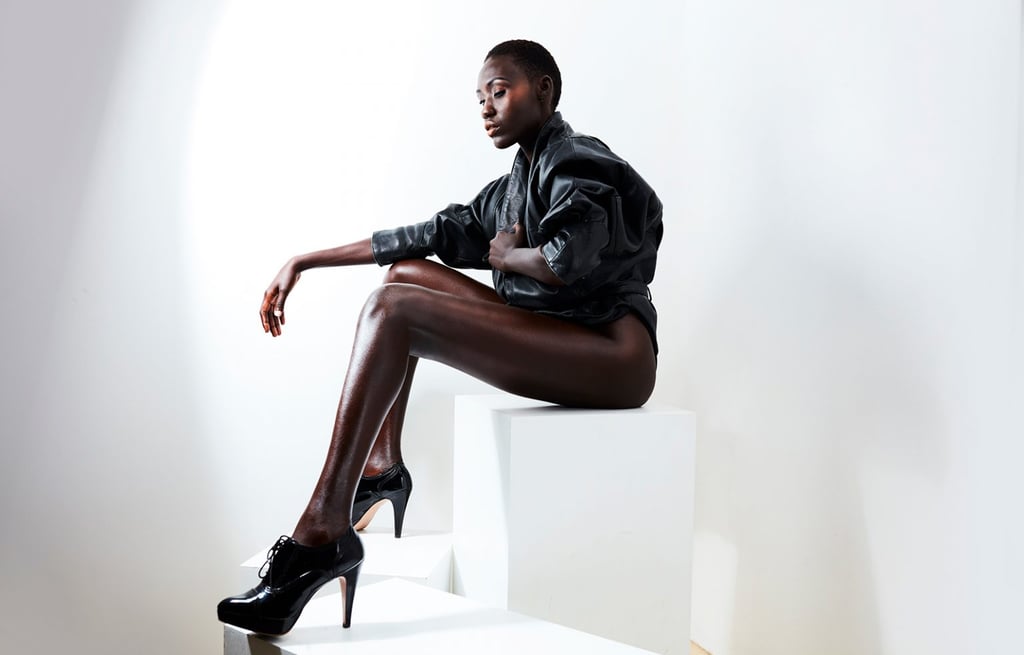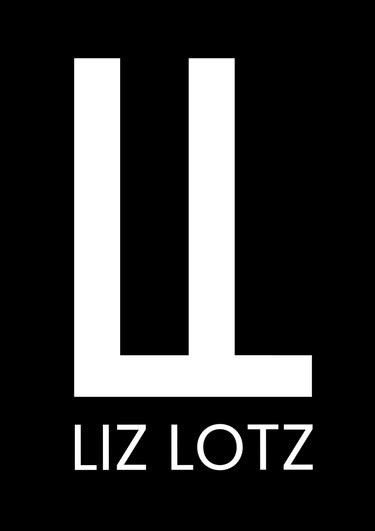Creatives & Thought
Exploring the Mind Behind Innovation and Artistic Thinking
Elizabeth Lotz
The psychology of creativity has been beaten to death, analyzed from every conceivable angle until it resembles an intellectual corpse that academics and self-help gurus continue to prod for signs of life.
And yet, here I am (equal parts observer and participant), sitting in the metaphorical basement of creative discourse, watching as two opposing factions duke it out on the sixteen-inch TV of contemporary thought. As if I am going to reach a conclusion that says, "Buck! You're the winner!"
On one side are those who insist creativity is a divine gift bestowed upon the chosen few, on the other are those equally convinced that it's nothing more than a muscle that can be trained through repetition and technique. The premise of this entire debate (and every debate about creativity, from what I can deduce) is that we all need to pick a side and stick with it, which strikes me as oddly confident, especially for a subject so fundamentally elusive.
But what if the whole debate is rigged, not because the ideas are wrong, but because the lens itself is cracked?
I want to understand more.
As I type this, I am becoming increasingly suspicious that both camps are simultaneously 100% right or catastrophically wrong, which leads me to believe that our understanding of creativity will completely collapse within the next twenty-five years (major assumption, might I add, call it "positive thinking").
Divergent Thinking vs. Convergent Thinking: The False Dichotomy We Can't Seem to Escape
The alleged battle between divergent and convergent thinking has been framed as some sort of psychological cage match, as if these two cognitive processes are mortal enemies rather than roommates who occasionally bicker over whose turn it is to do the dishes.
Divergent thinking (that chaotic, boundary-free explosion of possibilities) gets championed by the artistic elite as the "true" form of creativity. Meanwhile, convergent thinking (the methodical refinement of ideas into something actually useful) is quietly celebrated by those who eventually have to make something that functions in the real world. It's all amazing!
Here’s the very first obstacle: we've created this artificial separation, as if the human mind operates in such cleanly defined categories.
In reality, the most interesting creative work happens in the messy, undefined spaces where these processes overlap; spaces that are uncomfortable for academics to discuss because it doesn't fit neatly into PowerPoint presentations at a creativity conference that no one outside academia actually attends.
That gray zone is where most of us live, and it’s where it happens.
Creativity and the Unconscious Mind: The Delusion of Control
We serve up the relationship between creativity and the unconscious mind, which feels like watching two people who are clearly in love but refuse to admit it, even to themselves.
Creatives love to romanticize the "Eureka!" moment that arrives from seemingly nowhere, attributing it to some mysterious force beyond their control. It's a convenient narrative that simultaneously allows them to take credit for brilliance while absolving themselves of responsibility for mediocrity. "It just came to me," they respond, as if creativity is some capricious spirit that possesses them at random intervals.
Here’s what I’ve started to wrestle with: it runs counter to everything I hear from neuroscientists, who insist that these "spontaneous" insights are actually the result of complex neural processes that have been quietly working in the background.
Unquestionably, and that's why I'm writing this, there are two sides to this faction. It feels like our society is having a debate over what is true and what is false, but the real tension lies in the discomfort of admitting we don’t fully understand how our own minds work from both sides.
Constraints and Creativity: The Paradox We Pretend to Understand
The notion that constraints fuel creativity has become such a widely accepted truism that it's practically engraved on the wall of every design studio. "Limitations Breed Innovation!" the wall proclaims, while underneath it, a creative director stares blankly at a brief that gives them approximately three days to revolutionize an entire brand identity with a budget that wouldn't cover a decent lunch in Manhattan.
The constraints mantra is the obstacle in brutal clarity, not a paradox; it’s exploitation masquerading as inspiration.
The myth comes from rare success stories (some madman coding a 280-character limit into a cultural juggernaut for yet another system), but for every one of those, a thousand creatives are working through sleepless nights for clients who think “tight constraints” means “free labor.” Platforms are littered with rants from designers and writers burned out by this hustle porn, where “innovation” just means meeting a deadline that should’ve been a week longer.
My supposed truth?
Constraints can spark ideas for some, but for most, they’re a chokehold, not a muse. And no, I’m not here to tell you how to “break through” because the real question is why you and I keep swallowing this narrative. And with AI spitting out “love” in seconds, why are we still pretending human creatives need to suffer to “spark genius”? Maybe that’s why our whole view of creativity is headed for a crash.
The solution isn’t rejection or blind acceptance. It’s messier than anyone wants to admit: the relationship between constraints and creativity isn’t a rule, it’s a spectrum. It varies wildly depending on the individual, the task, and a thousand other variables we conveniently ignore when writing inspirational posts about “embracing limitations and algorithms.”
Some constraints are brutal chokeholds; others are sacred scaffolds. But until we learn to tell the difference, we’ll keep mistaking burnout for brilliance.
The Creative Personality: A Myth We Can't Seem to Abandon
Allow us to suspect that the concept of a "creative personality" is perhaps the most successful fiction the psychology of creativity has ever produced. It's a convenient shorthand that allows us to divide the world into "creative types" and "everyone else," as if creativity were a gold card checking personality traits at the door.
The traits associated with this almost mythical persona—openness to experience, tolerance for ambiguity, and willingness to take risks—sound more like the qualities we've chosen to value in supposedly individualistic societies than universal requirements for creative thought.
And so, the "want" returns: to understand whether creativity is an identity or an action, whether it’s something we are or something we do.
Society (well, most of us) is having a debate over what makes someone creative, when perhaps the more interesting question is why we're so desperate to categorize and contain creativity. What if creativity is not a personality trait, but a behavior anyone can access, if given the right conditions?
Flow: The State of Mind We've Elevated to Godhood
There’s the indomitable, world-renowned flow state. It’s become the secular religion of creative professionals; a psychological nirvana where time dissolves, focus sharpens, and productivity presumably skyrockets. People speak of it in reverent tones usually reserved for spiritual epiphanies, as if entering "flow" were the goal itself, rather than truly creating something meaningful, whether it's a campaign or in a coworker's life.
What I am seeing is crazy, but more fascinating is that we've created an entire industry around helping people achieve this state, complete with apps, workshops, and overpriced retreats, all promising to help you find your flow.
The obstacle is that flow has become a commercial carrot, dangled in front of burned-out creatives like salvation. Yet again, plenty of remarkable creative work happens in states of distraction, frustration, or even boredom.
It does not matter what methods I try or how I structure my environment; there will always be a handful of myopic productivity opinions that won't be satisfied until my creative process fits their predefined model of optimal performance.
The solution might just be this: honoring that grey, chaotic, imperfect, nonlinear reality of the creative process, even when it doesn’t look like flow.
Emotional Intelligence and Creativity: The Relationship We Pretend to Understand
Many creatives notice a link between emotional intelligence and creativity, but it’s often assumed to be obvious without much debate. It is as if the correlation is so obvious that it barely warrants discussion. "Of course, emotional intelligence enhances creativity," they say, swirling their drinks with the confidence of people who have read exactly one popular psychology book on the subject (generally, not one scholarly article).
Again, the assumed truth, which is always messier and less social media-friendly, is that the relationship between EQ and creativity is complex and occasionally contradictory. Some of history's most innovative creators were emotional disasters (in all honesty, I wanted to say fuck-ups, beautiful catastrophies who couldn't hold a conversation without starting a feud but still managed to change the course of art history), while plenty of emotionally intelligent people create work that's technically proficient but utterly forgettable.
The obstacle, yes, again: we've confused correlation with causation; narrative with nuance.
Mostly, I have felt comfortable suspecting that everyone was wrong about the direct correlation between emotional intelligence and creative output. However, I am starting to dabble in the notion that this is no longer the case. Maybe the shift, the real solution, is recognizing that emotional awareness doesn’t guarantee creative brilliance, but it might just help us survive the process with a little more grace.
So, where does that leave us, hunched over our creative endeavors in the semi-furnished basement of human achievement?
That’s the final question; the summation of the want, the struggle, and the glimmer of clarity.
Perhaps accepting that creativity, like most interesting human phenomena, resists our attempts to contain it within clean theoretical frameworks. Contradictory and wildly inconsistent; this is exactly what makes it worth thinking about in the first place. I suppose it's what it's meant to be.
We're all just feeling around in the dark, occasionally bumping into insights that feel profound until we try to articulate them to someone else. Opening cans of worms is what happens when we start questioning the comfortable narratives we've constructed around creativity (and pretty much everything else in our lives).
We have to understand that the worms were always there, writhing beneath the surface, but we just prefer to keep the lid on be on because it's neater that way.
Maybe that’s the point. Maybe creativity is not a tidy conclusion; it’s the willingness to open the can.


